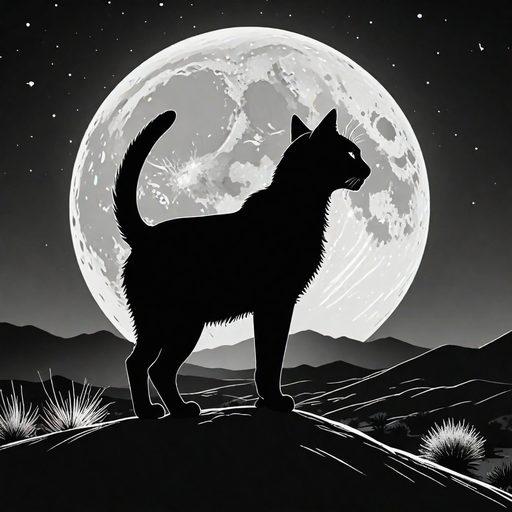
A Wild Cat’s Tale: Kipling’s Classic Just So Story
Recommended for Book Reviews
“Just So” Stories: A Parent’s Love Letter to a Child
The genesis of Rudyard Kipling’s enchanting “Just So Stories” lies in the heart of a father’s love for his child. Josephine “Effie,” Kipling’s firstborn, served as his muse and his most demanding critic.
Much like a maestro composing a symphony, Kipling carefully crafted these bedtime tales, each word and cadence chosen with precision. Effie, with the unyielding insistence of a child, demanded that these stories be repeated “just so,” each time, with no deviations.
The Ritual of Storytelling
Any parent who has embarked on the nightly ritual of storytelling will recognize the power and magic that these moments hold. The familiar rhythm of the words, the anticipation of a beloved phrase, and the shared intimacy of a story create a bond between parent and child that is both profound and enduring.
Kipling’s dedication to preserving the integrity of his stories mirrors the unwavering love and attention that parents shower upon their children.
Kipling’s “Just So Stories” have transcended time, captivating generations of children with their whimsical charm and imaginative narratives. The tradition of parents reading aloud to their children continues to flourish, fostering a love for literature and igniting the spark of curiosity in young minds.
These stories, passed down through generations, serve as a testament to the enduring power of storytelling and the unwavering love between parent and child.
The Cat’s Quest for Freedom and Comfort
In “The Cat that Walked by Himself,” Kipling paints a vivid picture of the dawn of animal domestication. The Cat, a shrewd and independent creature, watches with keen interest as the Woman, through her charm and cunning, lures the Dog, the Horse, and the Cow into a life of service in exchange for warmth and sustenance.
The Cat, however, remains aloof, clinging to its freedom and declaring, “I am the cat who walks by himself, and all places are alike to me.”
The Temptation of Comfort
Despite its defiant stance, the Cat is drawn to the comforts of the cave—the warmth of the fire, the aroma of food, and the promise of creamy milk. The Cat’s desire for these comforts leads it to strike a unique bargain with the Woman.
The Cat will perform certain tasks in exchange for the Woman’s kind words and, ultimately, the privileges of the cave.
The Cat’s cunning nature shines through as it negotiates a contract with the Woman. With each act of service—soothing the crying baby, entertaining it with playful antics, and even catching a pesky mouse—the Cat earns its rewards.
The Cat’s cleverness is a testament to its independence and resourcefulness, even as it embraces the comforts of domestication.
The Price of Independence
The Cat’s newfound status is not without its challenges. The Man and the Dog, resenting the Cat’s independent spirit and seemingly effortless gains, express their disapproval. The Man throws objects at the Cat, and the Dog chases it up a tree. This animosity, Kipling suggests, is the root of the age-old conflict between cats, men, and dogs.
A Universal Truth
Kipling’s depiction of the strained relationship between cats and their human and canine counterparts resonates with a universal truth. Cats, even those who have embraced domesticity, retain a fierce independence and a wild spirit that sets them apart.
This unique characteristic, while endearing to some, can also be a source of friction, as the Cat’s self-sufficiency and aloofness can be interpreted as arrogance or disdain.
The Cat that Walked by Himself” serves as a metaphor for the human spirit’s yearning for freedom and independence. It reminds us that even as we seek comfort and companionship, a part of us will always crave the thrill of autonomy and the satisfaction of charting our own course.
The Cat’s legacy lives on in every feline that graces our lives, a constant reminder of the wild heart that beats within even the most domesticated creatures.
Related Stories
- Just So Stories Revisited
- Rikki-Tikki-Tavi
- The Jungle Book
- Kipling’s “Kim”: A Journey Through Colonial India
Watch a video
This video beautifully brings to life Kipling’s classic tale.
Curious Times is a leading newspaper and website for kids. We publish daily global news aligned to your learning levels (also as per NEP 2020): Foundational, Preparatory (Primary), Middle and Senior. So, check out the News tab for this. We bring kids’ favourite Curious Times Weekly newspaper every weekend with top news, feature stories and kids’ contributions.
Curious Times News Program for Schools for FREE. Over 5,000 schools and teachers from all over the world have joined our programme so that students and teachers can get FREE Educative Newspaper. Here, kids can take part in world events and win prizes and certificates for free through their schools.
The following social media platforms allow you to communicate with us: Instagram.
0 (Please login to give a Curious Clap to your friend.)
